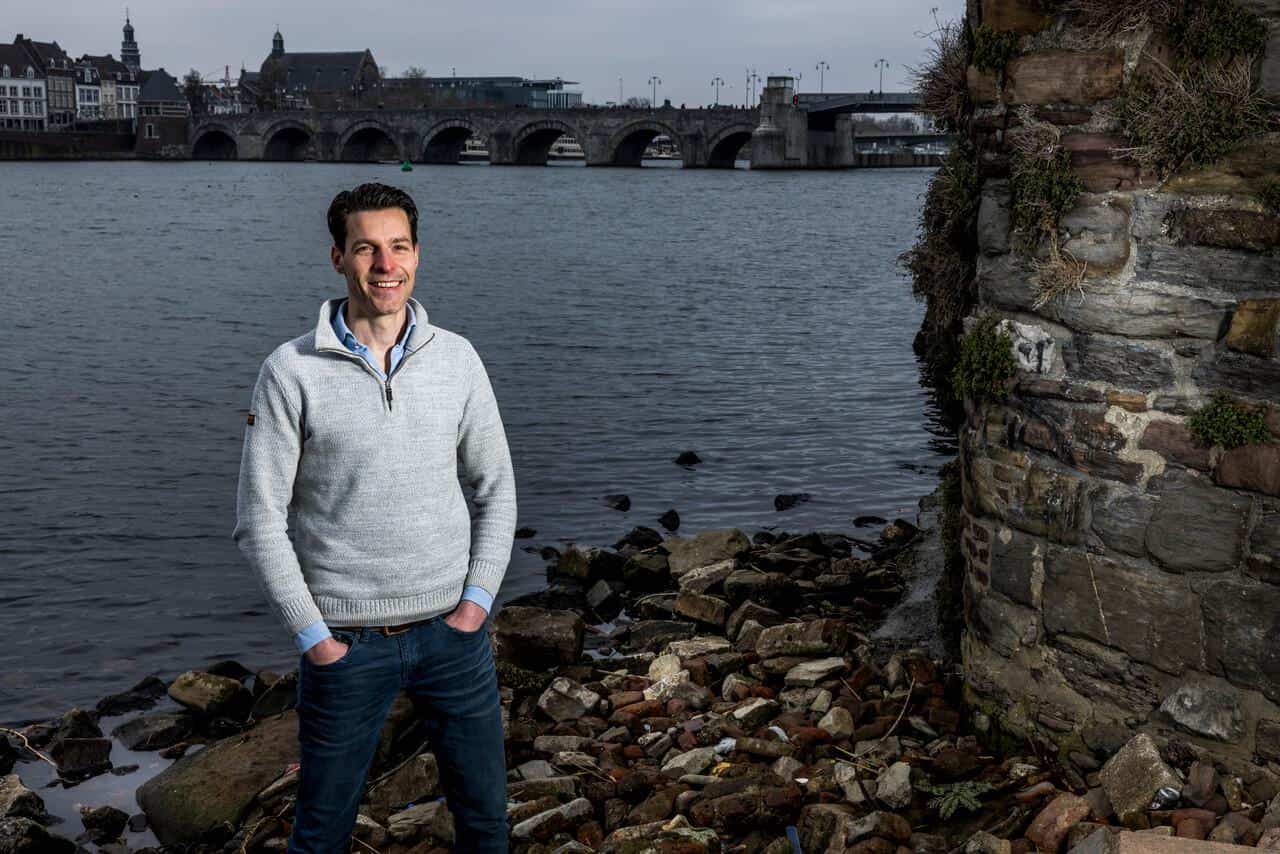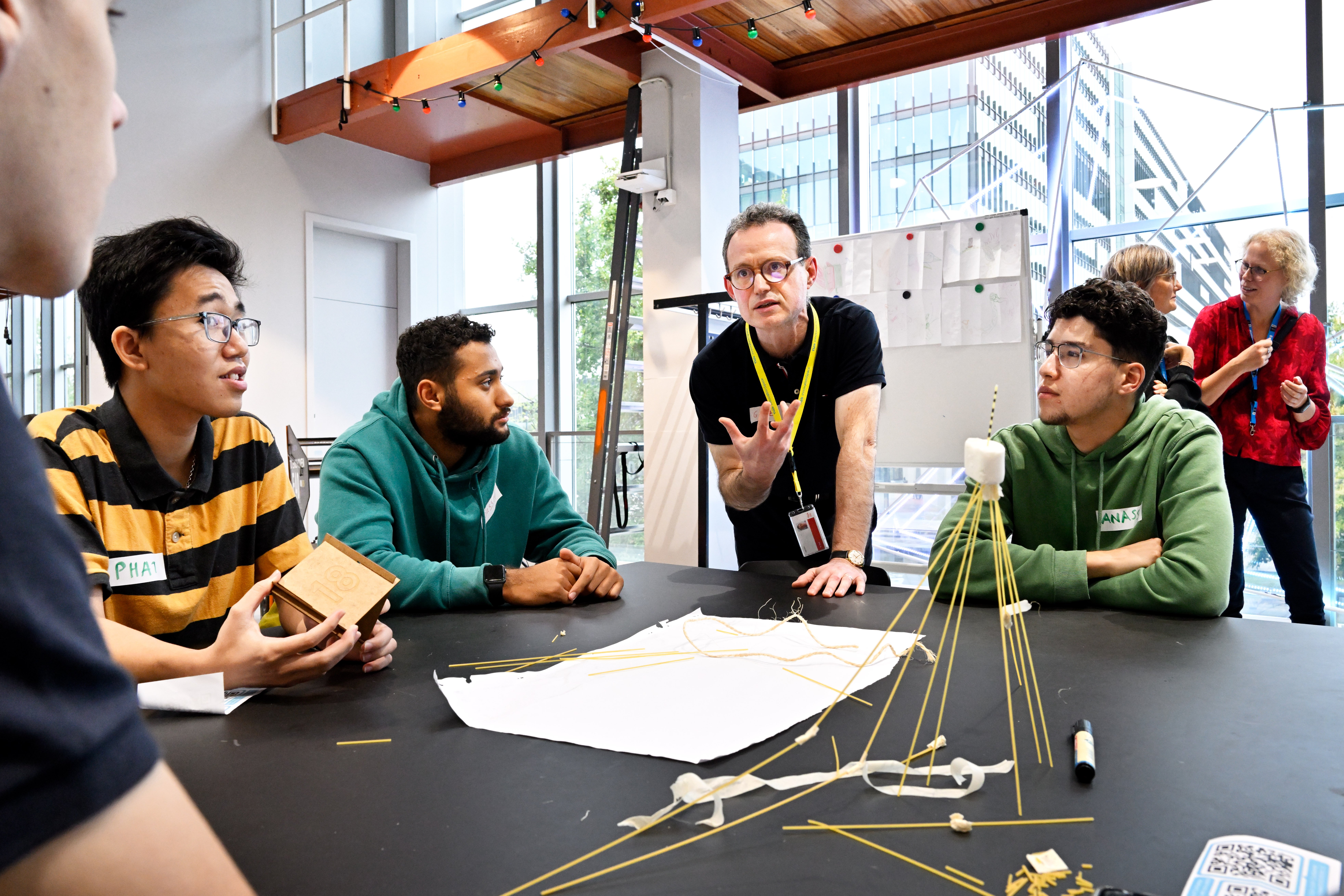
The office where the scale-up Avular moved into this summer will soon be too small once more, says its new board member Koen Evers. ” We are growing fast, someone joins us every two weeks.” The scale-up, which originated from a student team at the Eindhoven University of Technology (TU/e) here in the Netherlands, is doing extremely well. Not only did Avular launch online sales last month of the Prime, its industry standard building block for mobile robots. The company also won an award for these innovative building blocks for mobile robots. That award was presented by the Consumer Electronics Show (CES), the largest technology trade fair in the world.
“We are keen to help as many parties as possible with ideas for a robot to turn that idea into reality,” explains Evers. “Often, a company does have an understanding of a specific field, knows what the added value of a mobile robot can be and what an application should be capable of doing. However, knowledge about robotics is often lacking. We then provide the basics for mobile robotics. This enables companies to make the specific application themselves, with or without the support of our engineers.”
Library of software
The Prime is the first product for sale through its webshop. Co-founder Yuri Steinbuch described in an earlier interview with IO that this comprises a real-time controller, measuring 8 by 8 centimeters and 5 centimeters in height, which is ideally suited for reading sensors and controlling, e.g. motors, lights and robotic arms.
Another product that is to follow, for instance, is modular software, a “library of basic blocks that you can use to program.” Or modules that allow you to extend the Prime, so that even more applications can be hooked up to it. A number of customers are already working with these products, and in time these will also become available in the webshop Evers adds.
This way, companies that are knowledgeable about high-tech mechanical engineering but do not have the workforce or specific knowledge of robots can still develop a mobile robot themselves, Evers goes on to say. “If the knowledge that is needed is lacking altogether, then our engineers will then take on the development of their project.” Last October, the company applied for a patent for the Prime and other components in the series.
In this respect, the Prime is the brain of the machine. It sees to it that the machine does what it needs to do. For example, together with the Eindhoven-based cleaning company i-team, the scale-up developed a series of autonomous cleaning machines. Evers: “Last week, I was at their launch event where these cleaning devices drove around amongst the public.”
Growth

That the Prime is a highly promising product was something the jury at CES also saw. The next edition is set to take place from 5 to 8 January next year in Las Vegas. Avular is part of the Dutch delegation, which is made up of 50 start-ups and 20 scale-ups. It was also awarded as an Innovation Award Honoree on October 14. Each year, a jury comprising representatives from Google, BBC, Abobe and Qualcomm, among others, awards prizes to the most innovative applications. There are 28 different categories, Avular won a prize in the ‘Robotics’ section.
Evers worked for 14 years at Vanderlande, a company specializing in automated logistics. He has had several positions in which he was involved in product development and product management. He was also responsible for the commercial side of Schiphol Groep, among other activities. Over the past few years, Evers personally got to experence working in a start-up. He set up a start-up within Vanderlande that is developing automated guided vehicles to transport suitcases and pallets. It was through this project that he got to know Avular. When that start-up became a part of the company at some point, Evers made the move to Avular. “This is a group of young energetic people with great ideas for the future. A future where mobile robotics can mean a lot in terms of making the world a better place. I want to help the company grow.”
The company wants to expand to over a hundred people in the near future. Evers: “But growth doesn’t only mean more people. Our products are operational at customers’ premises, so you also have to organize your quality management and service better. I have experience with that. We are a good match.”
Glass room
As a matter of fact, his start in mid-July was the perfect time to get to know the team, Evers notes. The new office had yet to be finished. “Just don’t put on your good clothes,” he was told. “With the whole team, we got to work. So basically I’ve been here as long as anyone else. We’re making something of it together. I instantly felt part of the world here.”
The new office, like the previous one, is also on the Strijp-T site. In one of the buildings on the former Philips grounds that still had to be renovated. Avular has a whole floor there. A large, open space with several offices where the teams work on new applications for robots. In a large glass room, you can actually see the engineers making the products. Eleni Nikolla and Konstantina Skrika are busy assembling the ordered Primes. “The circuit boards are manufactured somewhere else. This is where we do the final assembly and test them.”
Thomas van den Braak is also working in the same glass lab on a modular platform for a mobile robot. Evers: “Some companies start with nothing more than just an idea, like the potato growing company we are making this for. That’s why we’re also developing a driving and flying modular platform, a drone, as a ready-made platform for a mobile robot.” Van den Braak: “I have been working here since April. It varies a lot, sometimes I work on a drone and now I’m working on this framework.”
By the coffee machine
“Our strength is that the products we develop are immediately put to use at our customers,” says Evers. “One group of employees develops the standard blocks, the Essentials, and the other group uses those blocks in a project with a customer to quickly create an application. The feedback literally happens standing around the coffee machine. So we learn very fast, which is why we are constantly improving these modular building blocks.”
For Evers, it’s also important to see what you are working on. “That was also my reason for studying mechanical engineering at the time, because it yields something physical. That’s what happens here too. The people working on the software actually see what the final product is. That’s important not only for learning and for being able to get a sense of the product, but also for the team’s level of enthusiasm. You are really crafting it together.”







